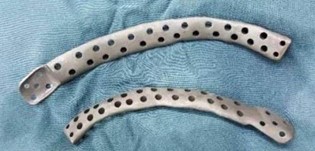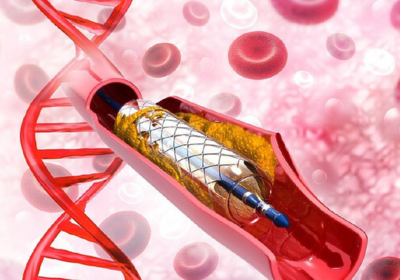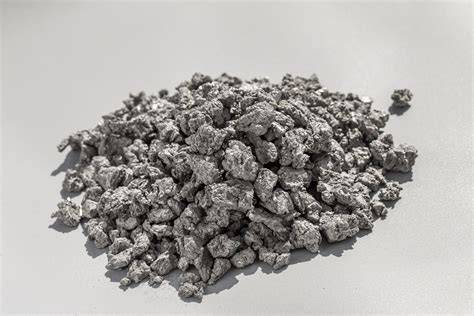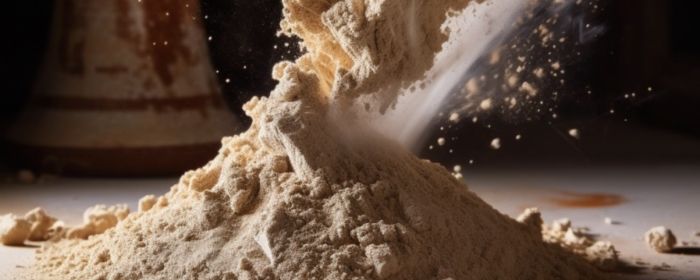

Titanium alloy powder accounts for 30-40% of the total share in the medical metal powder market, particularly in manufacturing implants within orthopedic applications, dental restorations, and cardiovascular devices.
It has become one of the most successful metal materials in biomedical engineering with its excellent properties.
| Property | Benefits |
| Excellent biocompatibility | Does not trigger rejection by the human body |
| High strength, low density | Higher strength at the same weight |
| Superior corrosion resistance | Reduces risk of degradation |
| Low elastic modulus | Minimizes "stress shielding effect" |
Compared to other metal powders like stainless steel or cobalt-chromium alloy powders, titanium alloy powders do not cause immune rejection in the human body, making them widely used in medical implants. Titanium alloys also bond well with bone tissue, making them suitable for long-term implants.
Titanium alloy powders have a high strength-to-weight ratio, offering sufficient mechanical strength while maintaining a low density. This makes them lighter than steel or cobalt-chromium alloys while providing similar or even greater strength, ideal for orthopedic and dental applications.
Titanium alloy powders exhibit excellent corrosion resistance, particularly in body fluids. They are more stable in humid and corrosive environments than other metal powders like stainless steel and cobalt-based alloys, reducing the risk of implant degradation.
Titanium alloy powders have a lower elastic modulus, closer to that of bone tissue. This helps reduce the "stress shielding effect," which contributes to long-term bone healing and implant stability.
Note: The "stress shielding effect" refers to the phenomenon where a highly rigid implant absorbs most of the stress, causing the surrounding bone tissue to bear less stress. Over time, this can lead to bone loss or weakening due to the lack of normal stress stimulation, affecting implant stability.
Through additive manufacturing and injection molding technologies, titanium alloy powder can be transformed into high-precision medical parts with complex shapes. This advancement has overcome the limitations of traditional medical device manufacturing, continually expanding its applications in the medical field.
Titanium alloy powder has an elastic modulus close to bone tissue and is of good biological compatibility, hence broadly applied in artificial bone manufacturing. Besides good biological compatibility, these artificial bones will bear mechanical properties similar to those of natural bone tissue, hence restoring mobility in the subjected patients effectively.
With additive manufacturing methods like 3D printing, for example, very complicated implant forms can be made with porosity by the use of titanium alloy powder. Such implants help to improve bone tissue growth and integration with natural bones to heal bone defects that are caused by traumas, diseases, and congenital problems. Due to their high resistance to corrosion, they boast of longevity, thereby minimizing the need for secondary surgery.

Fig 1. 3D printed titanium alloy porous structure ribs
That means it finds wide application in dental implants and bridges due to its lightweight, high strength, and compatibility with human tissue. The usage of powder metallurgy or additive manufacturing will allow for a perfect reproduction of restorations according to the individual oral structures that would improve the comfortability and performance of dental functions.
The casings of pacemakers are made from titanium alloys due to their excellent corrosion resistance, non-magnetic properties, and lightweight. The casing of the pacemaker is supposed to protect the electronic components from body fluids and rejection reactions. Long-term stability within the human body, combined with excellent biocompatibility, has been assured through the use of titanium alloys.
.png)
Fig 2. Pacemaker
Vascular stents can also be manufactured with titanium alloy powder by laser sintering techniques. The characteristics of high intensity, low-density features, and plasticity give the stent the ability to bear the complex mechanical environment in the body. These stents are implanted into the blood vessels to support the vessel walls and prevent narrowing, which in turn promotes the flow of blood.

Fig 3 Vascular Stents
With the continuous advancement of additive manufacturing technologies, titanium alloy powder's applications in medicine will become even broader and more profound. In the near future, titanium alloy powder will likely bring more innovation and breakthroughs to the medical field.
Stanford Advanced Materials (SAM) is dedicated to the research and development of spherical powder technology. We supply a variety of 3D printing metal powders, refractory metal powders, titanium, aluminum, stainless steel, cobalt, chrome, nickel, copper, etc. SAM provides Titanium Alloy Powder and Titanium Based Powder with different particle sizes. If you are looking for high-quality additive manufacturing materials, please get a quote.
Related articles:
Titanium Powder's Impact on Medical Implants
Zirconium Powder vs. Titanium Powder: Comparison of Properties and Applications

United States
.png)



